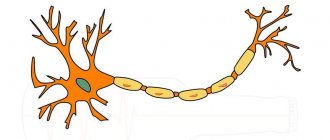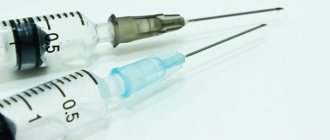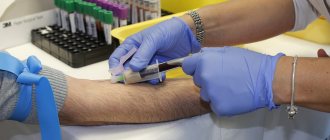The term “withdrawal” is usually associated with the state of drug addicts during the period of stopping drug use. However, alcohol withdrawal may not be any weaker. Modern cinema has colorfully described this condition in drug addicts in many films. However, in real life everything happens a little differently than in the films. In this article we will look at the symptoms of alcohol withdrawal. We will also give advice on how to survive this condition.
What is withdrawal
Withdrawal syndrome in alcoholism is typical only for people with stable addiction. If a healthy person drinks a lot of alcohol at a party, then in the morning he will suffer from a headache, he will vomit (this is how the body gets rid of intoxication), and there will be severe thirst.
Abstinence, or alcohol withdrawal, is a much more complex and serious condition. Often a sick person sees only one way to get rid of it - to drink any liquid containing ethanol. However, this is a vicious circle, since alcohol withdrawal will occur again and again. This will be observed until the patient completely gives up alcohol and goes into remission.
Abstinence mechanism
“Withdrawal” is the common name for withdrawal or withdrawal syndrome of a psychoactive substance, such as alcohol. The concept implies a set of symptoms of varying combinations and severity that appear when the use is completely stopped or the dose is reduced against the backdrop of a long-term addiction. The severity depends on the individual characteristics of the body, the stage of the disease and the amount of alcoholic beverages taken that preceded abstinence.
The very development of withdrawal symptoms is an unshakable sign of addiction. Long-term alcohol consumption leads to depletion of neurotransmitters, and other regulatory systems—opioid, GABAergic, and catecholamine—are affected. As a result, the activity of enzymes, mainly in the brain, changes, and dopamine accumulates.
The concentration of this monoamine in the blood corresponds to the severity of the withdrawal symptoms. Hyperstimulation of the sympathetic departments causes a sharp release of catecholamines (adrenaline) into the plasma. The sudden cessation of chronic intoxication weakens the inhibitory effect of GABA (gamma-aminobutyric acid) on the central nervous system, and the effect of its antagonist, glutamate, increases. Therefore, the clinic is represented mainly by symptoms of extreme excitement - agitation.
What to do if you are experiencing withdrawal symptoms
How to survive alcohol withdrawal? It's a difficult question. Much depends on how many days a person drank alcohol, what drinks he used, and in what quantity. After binge drinking, hospitalization is necessary, as there is a high risk of developing alcoholic delirium. This condition is popularly called “squirrel”. It is potentially life-threatening for the patient and his loved ones. How to relieve alcohol withdrawal on your own? Unfortunately, this often cannot be done without qualified help and prescription medications.
While in a state of delirium, the patient may experience hallucinations and cause bodily harm to his roommates or even passers-by on the street. If there is a risk of psychotic behavior during withdrawal, be sure to consult a narcologist or psychiatrist.
Complementary therapy
How to survive alcohol withdrawal and quickly restore lost body functions? This issue is resolved using complex methods. Simultaneously with detoxification, the narcologist prescribes medications that improve the patient’s general health, since alcohol withdrawal negatively affects all human organs and systems. These include:
- tranquilizers. Their task is to eliminate the symptoms of anxiety and return the patient to a normal psycho-emotional state. This group of drugs includes Phenazipam, Diazepam, Amizil, etc. They are prescribed at the very beginning of the development of abstinence for up to 5 days. The dosage in each case is selected individually, depending on how alcohol withdrawal manifests itself;
- adrenergic blockers that help normalize body temperature, blood pressure, and heart rate. Their use together with tranquilizers can reduce cravings for alcohol, anxiety levels, and mental stress;
- calcium antagonists. They are needed in order to prevent overstimulation of the central nervous system due to the lack of ethyl alcohol in the patient’s body. At this time, there is a risk of destruction of brain neurons due to an excess of calcium ions;
- magnesium preparations. The lack of this microelement leads to changes in the chemical composition of red blood cells, the occurrence of tremors of the limbs, insomnia, headaches, anxiety, and vegetative-vascular dystonia. Magnesium solution is injected into the body. The dosage of the medicine is selected depending on the patient’s weight. Injections are given 1-2 times a day with constant monitoring of blood pressure;
- anticonvulsants. If alcohol withdrawal is accompanied by convulsions or such conditions have been observed in the patient previously, Carbamazepine or a drug with a similar effect is prescribed to avoid convulsions and reduce the risk of complications.
Withdrawal syndrome at an early stage of development or in a mild form can be treated with oxygen phytotherapy, that is, taking oxygen cocktails containing protein. Drinking plenty of such drinks helps restore the functioning of internal organs, gain psychological comfort, stabilize blood pressure, and calm down. Such cocktails are made by blowing oxygen through a mixture of syrup, protein and tincture of medicinal herbs. You need to drink at least 1.5-2 liters of drink per day.
What is the difference between a hangover and withdrawal symptoms?
Hangover syndrome is expressed in the following symptoms:
- Headache.
- Nausea and vomiting.
- Pain in the epigastric region (most often this is observed if the patient has previously been diagnosed with diseases of the gastrointestinal tract).
- Short-term visual impairment, problems with coordination of movements.
How does alcohol withdrawal caused by withdrawal syndrome manifest itself? As a rule, a person feels much worse than with a normal hangover. Since alcoholism always affects the central nervous system and many neurons die, the symptoms are not only physical, but also psychological.
Clinical manifestations
Confirmation of abstinence is made by assessing the history and clinical manifestations. Other activities are indirect. Withdrawal syndrome is part of the diagnosis of alcohol dependence, therefore it has its own code in the International Classification of Diseases (ICD-10) - F10.3. The fifth sign specifies the presence or absence of complications.
AAS (alcohol withdrawal syndrome), as a rule, develops after 2–7 years of alcohol abuse, and clinically clearly manifests itself in stage II of alcoholism; in some cases, with extremely intense AAS alcoholization, the period is reduced to 1–1.5 years. Recently, there has been a tendency for a sharp reduction in the development of AAS (hereditary predisposition to alcoholism, early onset of alcohol consumption, etc.). When alcohol consumption is resumed in the case of many years of abstinence from it (for example, long-term remission), hangover symptoms are observed again, against the background of a relapse of alcoholism with clinical signs of the same stage at which the remission began.”
Medical scientific and practical portal “Treating Doctor”
Complaints and anamnesis
“Withdrawal” is an extremely severe psychophysiological condition, characteristic only of people with addiction. Somatovegetative disorders are often nonspecific, that is, they can occur in other situations, for example, post-intoxication syndrome - “hangover”. The following complaints and medical history are important in making a diagnosis:
- No relationship has been established with another disorder.
- Symptoms improve when drinking alcohol is resumed.
- The fact of prolonged abuse with subsequent withdrawal has been confirmed, after which at least 3 manifestations from the list are observed: general psychomotor agitation;
- tremor (shaking) of arms extended forward;
- having a strong desire to drink alcohol;
- signs of autonomic hyperstimulation: sweating, increased heart rate more than 100 beats/min, arterial hypertension, decreased appetite, headache, etc.;
- nausea, vomiting;
- anxiety;
- sleep disorders;
- convulsions;
- hallucinations.
What distinguishes withdrawal from disorders of another spectrum is a passionate desire to return to the previous volume of use, which is accompanied by psychopathological disorders. She is characterized by shallow sleep with nightmares.
The first signs of withdrawal appear after 8-24 hours of the last dose, and can last up to 2 weeks.
How to understand that you have alcoholism
The diagnostic criteria in narcology are very vague, but there is one of them that makes it clear that a person has alcoholism. If a person cannot stop after one glass of beer or wine, then with a high degree of probability it can be said that he has chronic alcoholism. Many of us have had situations in our lives when we just wanted to get drunk. Patients with alcoholism are in this state constantly. For them it is not associated with life’s difficulties.
We are accustomed to consider alcoholics only those people who, due to their vice, have lost their social status. As a rule, they have no job and no family. There are actually three stages of alcoholism. In the first stage, a person is still a full-fledged member of society. However, he is already familiar with the concept of alcohol withdrawal. Withdrawal symptoms will become more painful after each new use. There is only one solution to the problem - complete cessation of drinking alcohol.
How to survive alcohol withdrawal: signs, treatment
If a person has developed a persistent dependence on alcohol, then the body feels good during alcohol intoxication when it receives the usual dose of ethyl alcohol. It is she who temporarily relieves the patient’s painful symptoms of alcohol withdrawal. Such a reaction of the body to prolonged drinking of alcohol is a sign that the disease alcoholism has developed.
Even the smallest dose of alcohol entering the body of an alcohol addict causes withdrawal symptoms. If emergency sobering is not carried out, then binge drinking is inevitable. Because after about 5-6 hours the alcoholic begins to experience signs of withdrawal symptoms. Painful symptoms cause an irresistible craving for alcohol. If you take the next dose at this moment, the symptoms will subside for a while, only to return after a while. An alcoholic himself cannot get out of this vicious circle, so it is very important to help him. Binge drinking can last from several days to several weeks and even months.
Binge drinking can be stopped with saline-based drips. It contains general strengthening agents, vitamins, sedatives, and drugs that support the functioning of all body systems. To ease alcohol withdrawal, the doctor selects a complex of painkillers, anticonvulsants, and antipyretics.
Symptoms of alcohol withdrawal
Signs of withdrawal from alcoholism are as follows:
- Trouble sleeping for about a month after the last ethanol intoxication. The patient has nightmares, suffers from insomnia, and has disrupted sleep phases.
- Since a person does not get enough sleep, he constantly feels tired, and his performance decreases.
- Nagging pain and discomfort appear in the right hypochondrium. This is a reaction of the liver and gallbladder to poisoning.
- Irritability, tearfulness, and apathy appear as a result of multiple death of cells of the nervous system due to intoxication. Many patients, against the backdrop of exhaustion of the nervous system and psyche, think about taking their own lives.
- The functioning of the gastrointestinal tract is disrupted. Pancreatitis may worsen.
- Immunity decreases, so during the abstinence period there is a high risk of contracting viral diseases.
Alcoholism disease
Psychological and physical cravings for alcohol cause the patient to drink it uncontrollably and in excessive quantities.
Alcohol addiction is a serious complex disease that destroys the entire human body and his entire life. Like any drug addiction, alcoholism leads to constant long-term intoxication; this damages all the internal organs of the patient, which is a serious, but far from the only problem.
A person dependent on alcohol loses social connections and status, interest in life, stops experiencing emotions, enjoying ordinary things, and becomes immoral. The physical, social, emotional, spiritual spheres of the patient’s life collapse. The longer alcohol addiction lasts, the more destruction it produces.
How long does alcohol withdrawal last?
The standard duration of suffering during acute withdrawal is about a week. Here, a lot depends on the length of abuse and the nature of alcoholism, binge drinking or daily.
In addiction medicine there is also post-withdrawal syndrome. This is a kind of “swing”, in its frequency reminiscent of the phase change in MDP. The duration of post-withdrawal syndrome is about a year. Only if the patient completely stops drinking ethanol-containing liquids can the patient count on restoration of the emotional background, psyche and nervous system.
Complications from heavy drinking
Each time the patient’s binges become longer and longer, and the symptoms of alcohol withdrawal become more intense. With chronic alcoholism, it is especially difficult for the patient to survive the first three days of withdrawal without treatment. Convulsive seizures alternate with involuntary urination, a strong desire to drink is accompanied by depression and mental disorders. And only on the fifth day does a person feel better without treatment. How many people can withstand alcohol withdrawal without breaking down?
As a result of binge drinking and abrupt cessation of alcohol, acute conditions associated with the functioning of the gastrointestinal tract often occur. Peptic ulcer disease is a faithful companion of alcohol addiction. Alcohol poisons reach the delicate mucous membranes of the stomach and intestines, sometimes even without food. But during the period of binge drinking and alcohol withdrawal, the gastrointestinal tract is especially difficult.
At this time, it is necessary to carefully monitor the patient. If bloody discharge appears in the vomit, and you also see almost black feces, which acquires this color due to congealed blood, then you need to urgently call a doctor. This may be a sign of open bleeding in the gastrointestinal tract. In addition, during alcohol withdrawal, banal constipation and diarrhea are observed, and hemorrhoids may develop or worsen.
Without treatment, withdrawal symptoms sometimes lead to swelling of the brain. In this case, the patient most often falls into a coma and dies.
How to improve sleep during abstinence
One of the most striking signs of alcohol withdrawal is the inability to sleep. An alcoholic's sleep is light and brief. A person often wakes up in a cold sweat from nightmares.
Drugs that can improve sleep during abstinence:
- "Phenibut."
- "Fitosedan" (herbal mixture).
- Atarax (mild tranquilizer).
- "Tenoten" (anxiolytic drug).
- Teraligen (another popular anxiolytic).
Most of the drugs on the list can only be purchased with a prescription from a doctor, as they are psychotropic medications.
Alcohol withdrawal syndrome
Any dependence on psychoactive drugs invariably sooner or later leads to the development of withdrawal syndrome.
Alcohol withdrawal syndrome causes binge drinking, because without alcohol, a drug addict begins to experience a number of painful physical and mental symptoms. All these manifestations are called alcohol withdrawal.
Different psychoactive substances cause withdrawal symptoms at different times after the onset of the illness. There are drugs that are instantly addictive; addiction to some develops over several months or even years. But don’t let this mislead the addicted person, because withdrawal will happen one day to every drug addict and alcoholic.
How to cope with irritability during withdrawal
How to relieve alcohol withdrawal at home if a person is very irritable and aggressive? Such well-being and mood after intoxication of the nervous system is observed very often.
People who are far from the problem of alcoholism are sure that it is possible to survive the symptoms of withdrawal without taking medications. However, the patient himself experiences such an acute psychotic state that in some cases he can even commit suicide.
Traditional healers advise taking the following remedies:
- Anise seed infusion. You need to take 1 level teaspoon of dry seeds, pour 200 ml of boiling water, leave and take 50 ml before meals.
- Infusion of hop cones. You will need to pour boiling water (250 ml) into 1 teaspoon of crushed raw materials, leave for at least 60 minutes, strain and take 100 ml before bed. The duration of the course is until withdrawal disappears.
- St. John's wort infusion. You need 2 tbsp. spoons of dry herbs pour 1000 ml of boiling water and leave until cool. Drink 50 ml of the remedy until signs of withdrawal disappear.
Drugs that doctors prescribe in such situations:
- Antidepressants of the SSRI group (sold strictly with a doctor’s prescription). These are Paxil, Fluoxetine, Amitriptyline. You cannot choose an antidepressant for yourself. Only a psychiatrist or narcologist can prescribe medication. Taking antidepressants gently brings the patient's psyche back to normal. A person becomes calm, irritability and tearfulness go away, and thoughts about the meaninglessness of his existence leave. The main condition for admission is complete abstinence from drinking alcoholic beverages during the course of treatment.
- Taking mild tranquilizers, such as Atarax. This drug does not affect the production of neurotransmitters, as is the case with antidepressants. Taking tranquilizers can improve sleep and calm irritability. However, these drugs will not be able to provide a fundamental change in mood. Taking tranquilizers is a temporary measure, the purpose of which is to mitigate the symptoms of acute withdrawal.
- Taking herbal infusions with a sedative effect ("Fitosedan") or tablets with plant extracts ("Novopassit"). However, in case of acute withdrawal or suspected development of delirium, this group of drugs will not help. If a person’s withdrawal syndrome is mild, then it is quite possible to get by with taking mild sedatives.
Drunken state
In fact, binge drinking is an unsuccessful attempt by an alcoholic to relieve withdrawal symptoms. A person stops drinking, but a few hours after giving up strong drinks, alcohol withdrawal syndrome appears. If the addict shows willpower and does not drink, then the symptoms intensify, and so on until the next dose is taken. Binge drinking is a dangerous condition, and alcohol withdrawal, if not relieved with medication, can lead to stroke, heart attack, bleeding in the gastrointestinal tract, and delirium tremens.
To treat alcohol withdrawal, the doctor detoxifies the body using droppers. At the same time, painkillers, anticonvulsants, and sedatives are selected to facilitate alcohol withdrawal. Complete detoxification leads to the elimination of physical dependence, that is, the body can again work without the participation of ethyl alcohol in its metabolic processes. Detoxification is not a cure, but it prepares a person for rehabilitation. And most importantly, it allows you to safely quit binge drinking and eliminate the painful symptoms of alcohol withdrawal.
Drugs to support liver function
You should pay attention to the condition of your liver. This organ suffers more than others due to alcohol abuse. As a rule, after a binge or a single drink of a large amount of alcohol, you need to take hepatoprotectors:
- "Heptral". Preserves organ function during intoxication and has a mild antidepressant effect. Release form: ampoules for intravenous administration and tablets. This is one of the best drugs to take during alcohol withdrawal.
- "Essentiale". Contains phospholipids that support liver cells and help cope with intoxication. The course of treatment with Essentiale is at least a month.
- "Karsil". Available in the form of dragees. Contains silymarin as the main active ingredient. To restore liver cells, long-term use is required - at least a month.
- "Ursosan." Suitable for those patients diagnosed with cholecystitis. The drug facilitates the functioning of the liver and gallbladder, promotes the outflow of bile.
Causes of withdrawal symptoms in alcoholics
In the body of a healthy person, ethyl alcohol is processed by the liver and broken down into safe components. However, when you abuse alcohol, the dose of toxins is too high for the liver to completely neutralize them. As a result, alcohol breakdown products begin to accumulate in human tissues and organs.
The longer the experience of alcoholism, the more toxins remain in the body. Liver and kidney function is impaired by poisons that spread through blood vessels throughout the body, including the brain. Alcohol intoxication causes great harm to the central nervous system, destroying nerve fibers. The patient ceases to adequately perceive what is happening and does not understand the need for treatment. That is why it is necessary to treat alcohol withdrawal before it becomes the cause of long-term binge drinking and leads to critical changes in the patient’s body.
Alcohol withdrawal is especially dangerous when it occurs in young people. They quickly become drunk and lose their health. At the same time, they see no point in seeking treatment for alcoholism. But it is impossible to force them to accept the help of a doctor. But in any situation there is a way out. Take advantage of the help of psychologists at the NarMed drug treatment clinic. Using special techniques, they can motivate a patient with alcoholism to seek treatment. In most cases, such psychotherapy gives a positive result.
Call for a free consultation with a narcologist +7 (495) 648-66-16
Sobriety is the best cure for withdrawal symptoms
The most effective way to treat withdrawal symptoms is to stay sober. With alcoholism this is not easy. Unfortunately, this disease can be fatal. However, there are cases where people completely get rid of their illness.
If you continue to use, alcohol withdrawal will worsen.
Treatment
Alcohol withdrawal syndrome requires professional treatment. As soon as signs of the disease appear, you need to contact a drug dispensary or call a doctor at home.
In a hospital setting, relief of alcohol withdrawal syndrome is carried out using special injections and droppers to cleanse the body of toxins. Then measures are taken to restore the normal functioning of the nervous, cardiovascular and gastrointestinal systems. Treatment of withdrawal syndrome can be carried out at home, but under the supervision of a specialist.
Medication methods
Withdrawal syndrome in alcoholics can be relieved using medications from the following groups:
- Calcium antagonists - Amlodipine, Nifedipine. After heavy drinking, an excess amount of calcium ions enters the human brain, which provokes overstrain and destruction of the nerve fiber. These medications help cope with this.
- Sedatives with phenobarbital - "Corvalol". The drug inhibits nerve transmission, has a calming and weak antispasmodic effect.
- Tranquilizers – products with benzodiazepines “Phenazepam”, “Tazepam”, “Diazepam”. They are prescribed at the beginning of therapy, have a strong calming effect, eliminate anxiety and promote peaceful sleep.
- Beta blockers. Restore normal heart rate, blood pressure, body temperature. Atenolol is most often prescribed to patients. "Atenolol" for alcohol withdrawal syndrome prevents the occurrence of panic attacks and reduces cravings for alcohol.
- The anticonvulsant drug "Valproate" is prescribed if the patient has convulsive attacks.
- Complexes of magnesium and vitamin B6. They have a beneficial effect on the nerves and brain, helping to get rid of seizures, insomnia, and coordination problems. In case of severe withdrawal, there is a need for intramuscular injections of magnesium.
- Vitamin preparations – “Milgamma”, “Neuromultivit”. Taking medications during withdrawal symptoms normalizes blood circulation in the brain, stabilizes the nervous system, and eliminates metabolic disorders.
Some products should be used strictly as prescribed by a doctor and for no more than 4-5 days. Phenobarbital and benzodiazepines are psychoactive, narcotic drugs. Uncontrolled use of such substances causes persistent addiction.
It is not recommended to give the patient diuretics and laxatives. They will not help cleanse the body of toxins, but will lead to severe dehydration. Enterosorbents are used for detoxification.
Folk remedies
Mild withdrawal symptoms can be relieved using folk remedies. The recipes are based on soothing and restorative medicinal plant components.
The following folk remedies will help improve the patient’s condition at home:
- St. John's wort infusion. A tablespoon of herb should be poured into 250 ml of warm water, left in a water bath for 10–15 minutes and cooled at room temperature. You need to drink the product in the morning after breakfast and before going to bed, 50 ml.
- A decoction of hop cones and lemon balm. Pour 1 teaspoon of herbs into two glasses of hot water, hold in a water bath for 5-10 minutes, let cool. Drink half a glass before going to bed.
- Anise seed infusion. 1 tsp. Pour a glass of boiling water over the seeds and leave until completely cool. Drink half a glass before bed.
- Protein cocktail. Pour 1 tbsp into clean non-carbonated mineral water. l. chamomile and mint herbs, heat the mixture in a water bath. Pour 2 tsp into the broth. sugar, stir, cool, strain through cheesecloth. Pour egg white into the mixture, shake thoroughly. Drink a cocktail 2 times a day. The product relieves the syndrome at home and restores vitality.
To relieve headaches, you can apply ice compresses to your forehead (put the ice in a plastic bag and wrap it in a towel). To cleanse the body, drink about 3 liters of water.
In case of severe alcohol poisoning and severe withdrawal symptoms, folk remedies do not have the desired effect.
Symptoms
| Nervous system | The cardiovascular system | Gastrointestinal tract | Psyche |
| Hand tremors | Tachycardia | Vomit | Confusion |
| Headache | Weakness | Stomach pain | Memory losses |
| Dizziness | Cold sweat | Spasms | Irresistible desire to drink |
| Discoordination | Dyspnea | Liver disorders | Depression |
| Insomnia | Arterial hypertension | Dyspepsia | Aggression |
Withdrawal syndrome and hangover can be confused due to the similarity of symptoms. These include headache, nausea or vomiting, tremors of the limbs and rapid heartbeat. The only difference is that the first lasts for 3-5 days, and the last (hangover) goes away in the evening. Physiological processes that worsen well-being are associated with the breakdown products of ethyl alcohol accumulating in the patient’s body. Due to the fact that the liver cannot cope with their processing, the functioning of the following internal organs is disrupted:
- brain
- liver
- pancreas
- blood vessels
- respiratory system
The body, weakened by alcohol, reacts to withdrawal symptoms with a rapid heartbeat, difficulty breathing, elevated body temperature and chills. People who are close to such a person may notice external manifestations of withdrawal symptoms:
- vomit
- pale skin tone
- decreased muscle tone
- blood pressure fluctuations
- lack of coordination
- loss of appetite
- diarrhea
Many alcoholics are not even aware of withdrawal symptoms. They believe that they drink alcohol in accordance with the norm. Therefore, patients refuse help and react aggressively to advice from loved ones about starting treatment. But as soon as such a person stops drinking, the consequences of the disease will not be long in coming. Withdrawal syndrome can lead not only to a deterioration in well-being, but also to delirium tremens or psychosis.
Regular consumption of alcoholic beverages for 4-6 years forms persistent alcohol dependence. From the outside, this does not look like a binge; on the contrary, the patient believes that evening libations are a common way for many to relieve stress. Friday meetings, football on TV and a bottle of beer before bed turn out to be the shortest path to addiction. As you can see, the norm is a conditional concept used by addicts until the moment of withdrawal.
Characteristics of withdrawal
When a person falls ill with alcoholism, he ceases to adequately assess his own state of health and does not understand that he is no longer able to stop drinking on his own at any time. The manifestation of alcohol withdrawal indicates that the drunkard is not just abusing alcoholic beverages. The simplest difference between a banal hangover and abstinence can be considered the duration of the serious condition. A normal hangover will certainly go away within 24 hours without any obvious consequences for the body with the help of simple pharmaceutical remedies and following a regime of drinking plenty of fluids. Abstinence continues for a long time, alcohol withdrawal lasts for at least 3-6 days and usually ends with taking a new portion of alcohol. If a drunkard has the willpower to endure withdrawal without a new dose of alcohol, then this indicates the possibility of recovery. In this case, the remainder of the toxic components can be gradually eliminated from the body and their effect on organs and systems can be smoothed out by taking medications at home.
But even such a favorable outcome of alcohol withdrawal is not a guarantee that the drunkard will not go on a binge again, which will cause the emergence of a new abstinence. Each subsequent abstinence can manifest itself with increased force, it deprives a person of his ability to work, and can lead to psycho-emotional disorders and physical health problems. That is why in 65% of cases, recovery from alcohol withdrawal is possible only under the influence of medications prescribed by narcologists in a hospital. The danger of untreated withdrawal is visual or auditory hallucinations, which are the causes of multiple attacks of aggression and violent manifestations towards others.
Withdrawal symptoms
The severity of alcohol syndrome and the duration of binge drinking directly affect the extent to which the human body is severely poisoned. The symptoms of alcohol withdrawal can vary and depend, first of all, on the current health of the drinker.
Among the main withdrawal symptoms are:
- Tremor of hands and eyelids. After frequent tremors, an alcoholic may experience intense trembling of the body, which the person will not be able to cope with.
- Severe fatigue or pathological agitation. The sensation of any of these conditions is a symptom of chronic intoxication of the body with breakdown products of ethyl alcohol.
- Vomit. It happens only in especially dangerous and severe cases of abstinence, since with weak and moderate manifestations of it, the gag reflex in the body is weakened.
- Interruptions in sleep. Insomnia occurs very often in alcoholics, since the duration of wakefulness and sleep is constantly disrupted. When alcohol withdrawal occurs during periods of sleep, nightmares may begin to haunt the patient, which worsen the already unstable mental state of the patient.
- Increased intracranial pressure and, as a result, severe and frequent headaches.
- Failures in concentration, impaired logical thinking.
- Depressive states, manifested in apathy, various phobias and anxiety states.
- The occurrence of auditory or visual hallucinations. Hallucinations are the highest point of manifestation of alcohol withdrawal, therefore, alcohol dependence at this stage can only be treated in a hospital setting with the use of special sedative medications exclusively under the supervision of specialists.
The recovery period after alcohol withdrawal lasts for different amounts of time in patients with alcoholism. Here the main role is played by the fact of how long the patient is subject to addiction and, accordingly, how long the brain suffers from toxicological bombardment.
With complex treatment of alcohol withdrawal, its symptoms go away quite quickly, doctors stimulate detoxification of the body and free the human organs from accumulated toxins.











